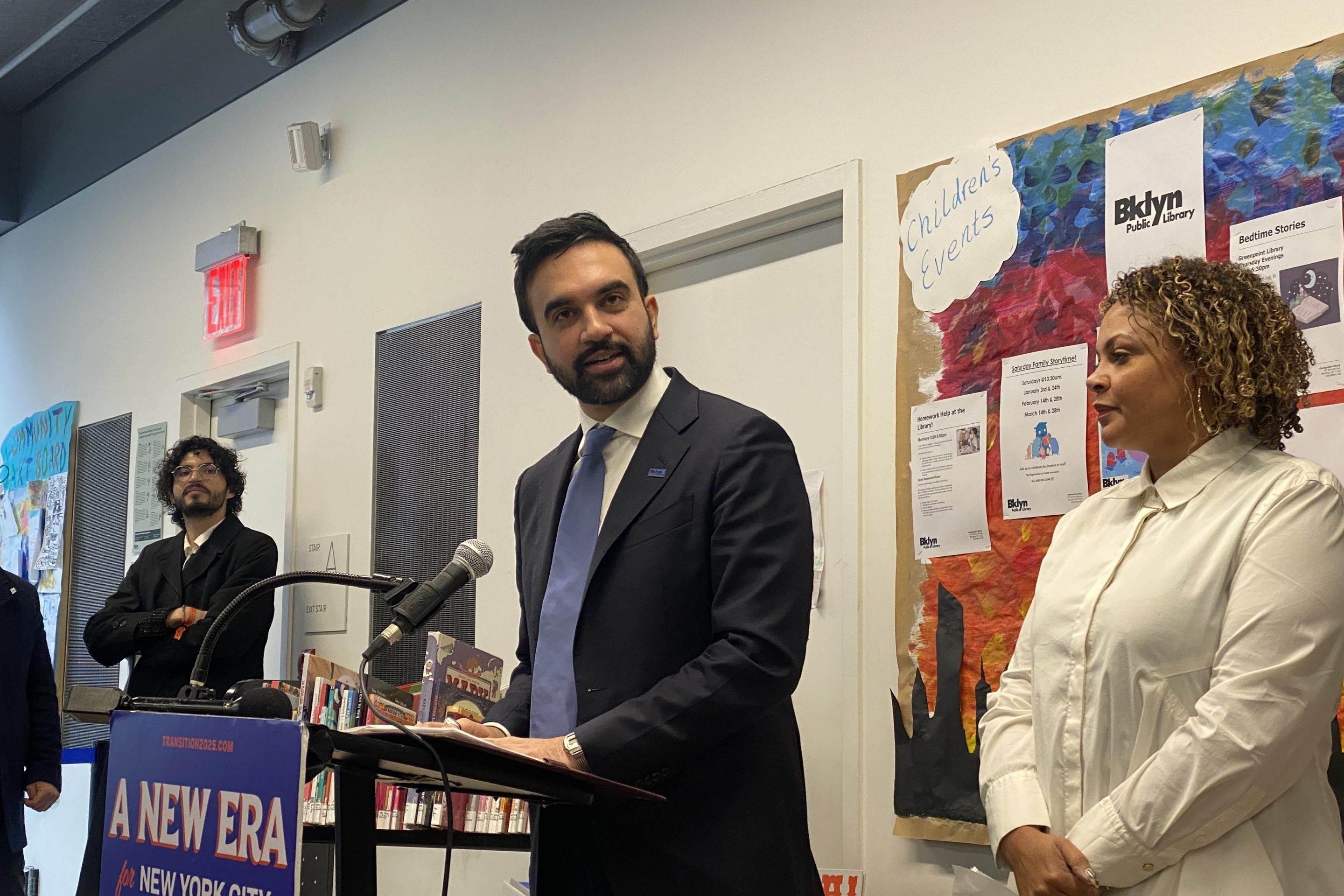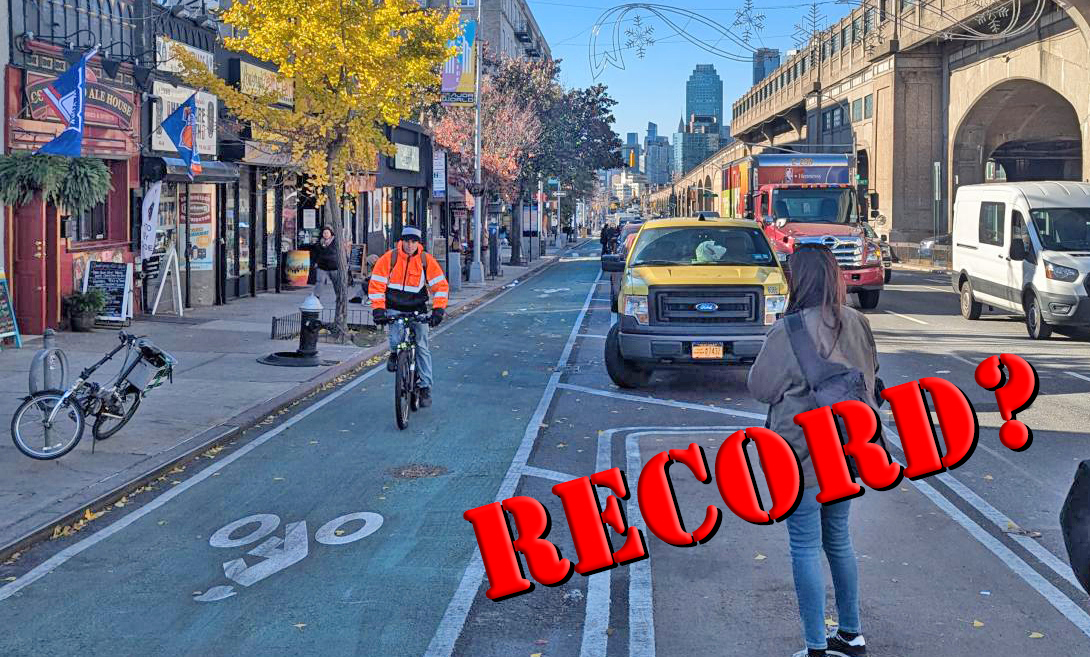Catch-22 is a great book, but it's no way to run a tri-state transit system.
Yet an absurd satire of Joseph Heller's signature work is playing out in New York right now, thanks to last week's surprise decision by state legislative leaders to reject the MTA's next capital plan, throwing the future of mass transit in the nation's most populous region into disarray, MTA CEO Janno Lieber said on Monday.
Assembly Speaker Carl Heastie and Senate Majority Leader Andrea Stewart-Cousins announced their rejection last week, citing the fact that all the funding has not been lined up yet for the $68-billion, five-year capital plan — even though that's common for such long-term plans. Their rejection has unleashed Lieber's literary concern.
"To veto the [capital] plan because funding issues remain to be resolved creates an almost insurmountable Catch-22 scenario," Lieber said in a letter to the pair, urging them to approve the capital plan before Thursday. "The MTA is required by law to submit an approved plan prior to the very legislative session where funding issues related to that plan will be addressed."
The problem with Heastie and Stewart-Cousins's rejection is not merely a few days of delay. By using their position on the obscure MTA Capital Program Review Board to halt a repair plan approved unanimously earlier this year by the MTA Board, the pair have double-handedly caused what could be a cascading series of failures, Lieber said.
For starters, well, Jan. 1 is the start date for the 2025-29 capital plan — meaning that if Heastie and Stewart-Cousins had merely signed off, MTA workers and contractors could begin the first part of the essential work comprised by the plan, Lieber said.
"The 2025-29 plan funds crucial state-of-good-repair track work performed by thousands of in-house MTA personnel starting on Jan. 1, 2025," Leiber said, citing the need to replace "rails and components that are beyond their useful life."
Without an approved plan in place — fully funded or only half-funded, as it is — Lieber said he would have to repurpose funding from the ongoing 2020-24 capital plan, which itself was delayed by the Covid pandemic and disrupted, partially, by Gov. Hochul's delay of congestion pricing, which delayed the MTA from receiving billions in revenue bonded from the central business district tolls.
Specifically, Lieber said that Heastie and Stewart-Cousins's rejection will delay subway improvements including "power upgrades at 47 substations and 16 circuit breaker houses, structural repairs on more than 10 lines, painting and repairing more than 20 miles of elevated structures, modernizing signals on the A line, replacing elevators or escalators at 13 stations, three station renewals, and ADA improvements at 17 stations."
There will also be "urgent resiliency, infrastructure repair, facility upgrades, station reconstruction, and station improvement projects" on Metro-North and the Long Island Rail Road.
Beyond the work is the need to finish obtaining the money for the overall plan — which is indeed not fully funded, as Heastie and Stewart-Cousins said in their rejection letter.
But just having the plan rubber-stamped and in place on Jan. 1 is crucial, even if some funding remains to be lined up: The federal government coughed up $14 billion for the last capital plan, but won't sign off on new funding until all the i's and t's are dotted and crossed on the new plan.
In addition, Lieber said, "An approved plan makes [an additional] $10 billion in MTA bonding capacity available. In addition to enabling design and development to proceed on the most urgent of projects, having this bonding available enables the MTA to provide local matching funds to unlock federal funding."
Alluding to President-elect Trump's inconsistent (at best) support for public transit, Lieber said a fully-approved plan allows his agency to move quickly — before the end of the Biden era on Jan. 20, 2025.
"Given uncertainty in Washington, D.C., aggressively pursuing federal funding is an immediate necessity," he said.
Lieber's letter carried a strong intimation of frustration with the state leaders, who gave no indication of opposition to the capital plan as it moved through the state-mandated approval process.
"As you are aware from our briefings," Lieber wrote, "the MTA performed its most-comprehensive evaluation of the system to date, looking at the condition of more than six million assets across our $1.5 trillion portfolio [after] decades of underinvestment in core infrastructure built more than 100 years ago."
Previously, the MTA has emphasized that outside experts say that repair and rebuilding investments on an infrastructure asset that large need to be similarly large.
"The 2025-29 plan has been thoroughly vetted," Lieber pointed out. "We have presented the 2025-29 plan to over 100 stakeholder groups, elected officials and members of the public in virtual briefings and open houses. It has received broad support for the appropriateness of the projects outlined over the next five years. Independent bodies like J.P. Morgan, the Citizens Budget Commission, and the NYS Comptroller’s Office have also assessed MTA’s capital needs and identified similar scales of needed investment, even ranging higher than what is proposed in the 2025-29."
So it's important, Lieber concluded. And he wasn't the only one; on Monday, the Permanent Citizens Advisory Committee to the MTA issued a statement also demanding that Heastie and Stewart-Cousins withdraw their objection to the capital plan in time for it to start on Jan. 1.
"If the MTA doesn't act immediately we could be put at the end of the line, waiting years for [new subway cars and repairs]," the group said in a statement. "Nothing gets cheaper the longer you wait. ... While we share New York's legislative leaders' concerns about the considerable funding gap for the next plan, we respectfully urge them to withdraw their objection while they address that issue in the forthcoming budget.”
Heastie did not immediately respond to a request for comment, but a spokesperson for Stewart-Cousins mocked the MTA's sense of urgency.
"It is absurd to say this rejection will result in the delaying of projects when we all know there are projects from the last capital plan that haven’t even started yet," said the spokesperson, Mike Murphy.
"We look forward to continuing the conversation with all the stakeholders in order to advance a fully funded Capital Program that addresses the vital transportation needs of the MTA network, which are critical to the State’s and region’s economic well-being."






